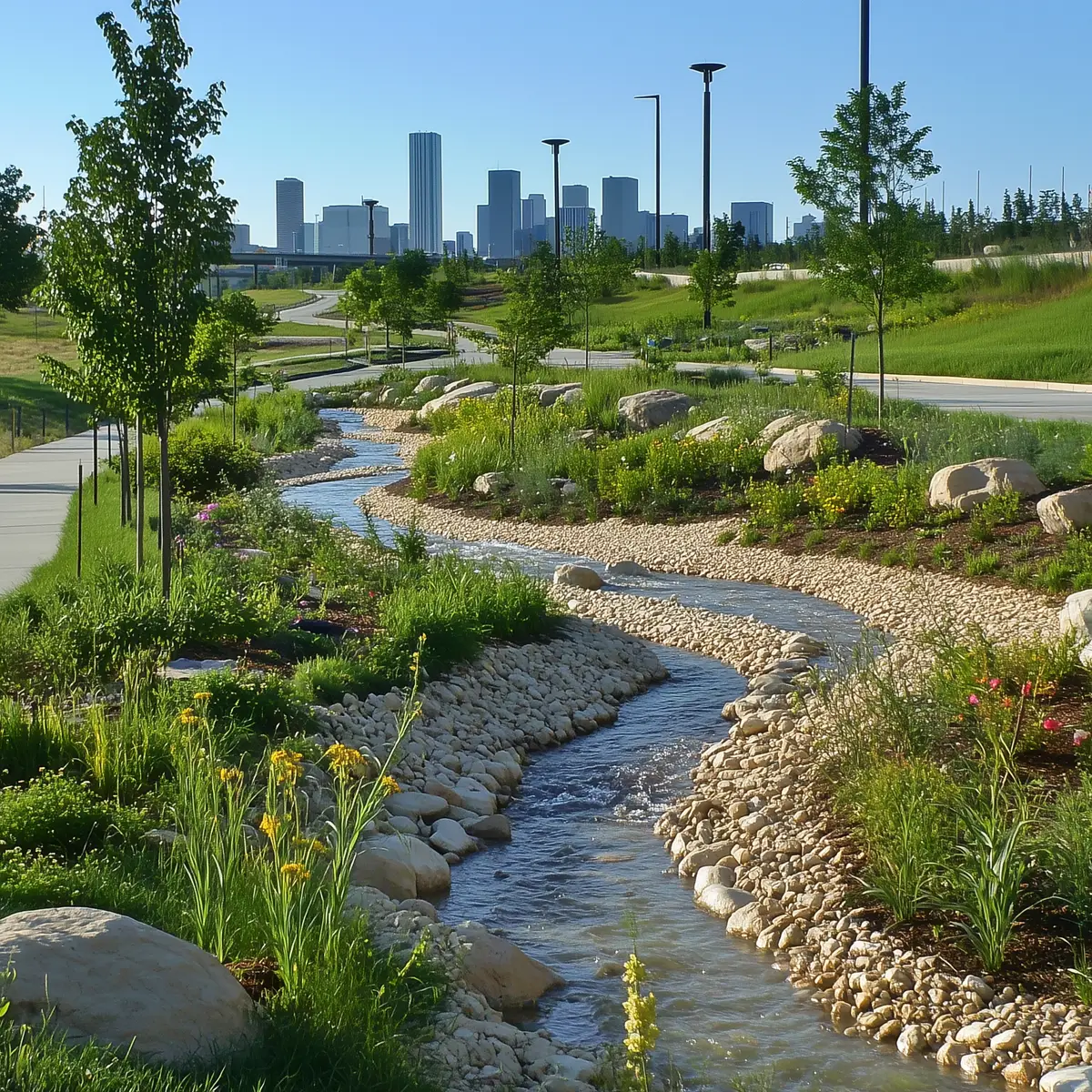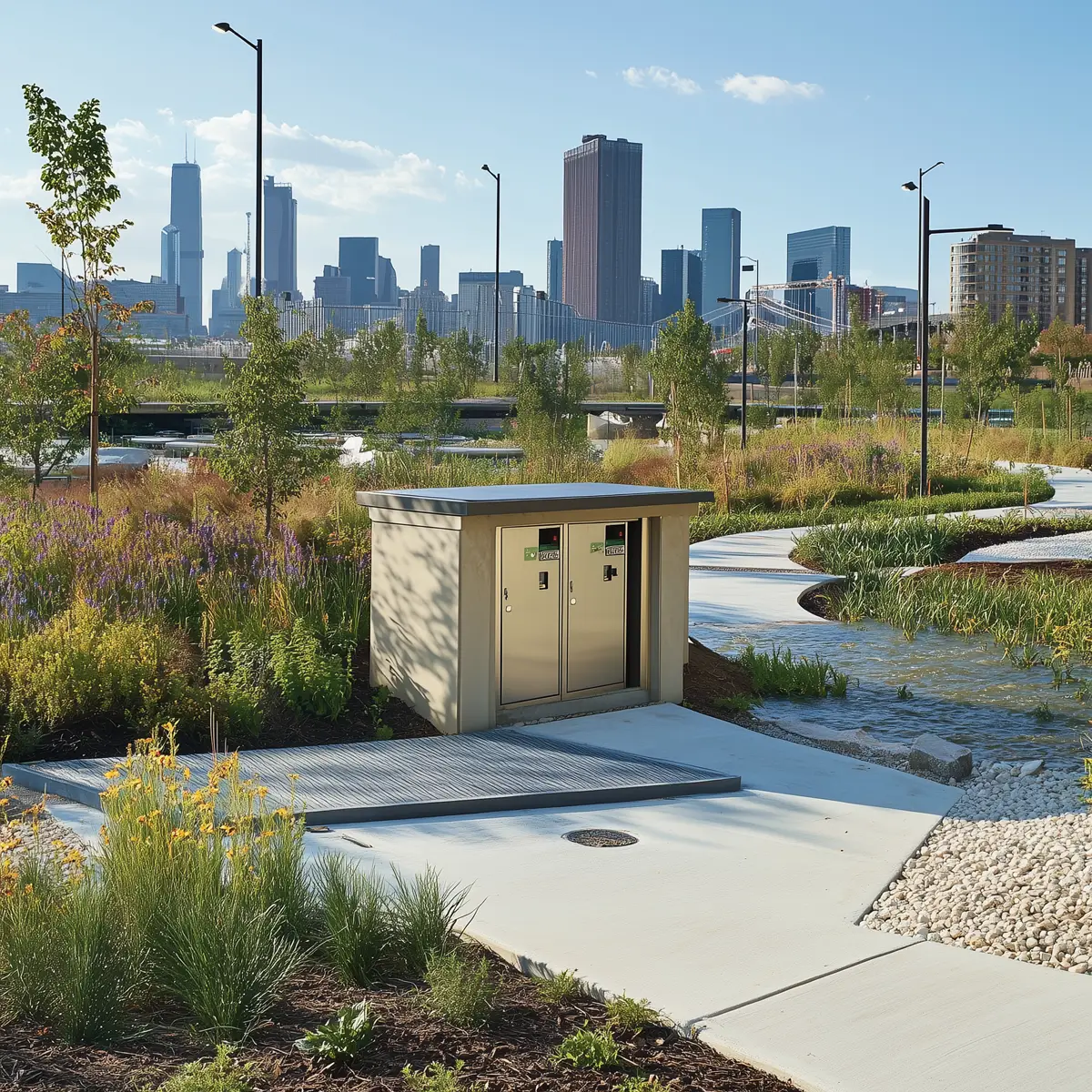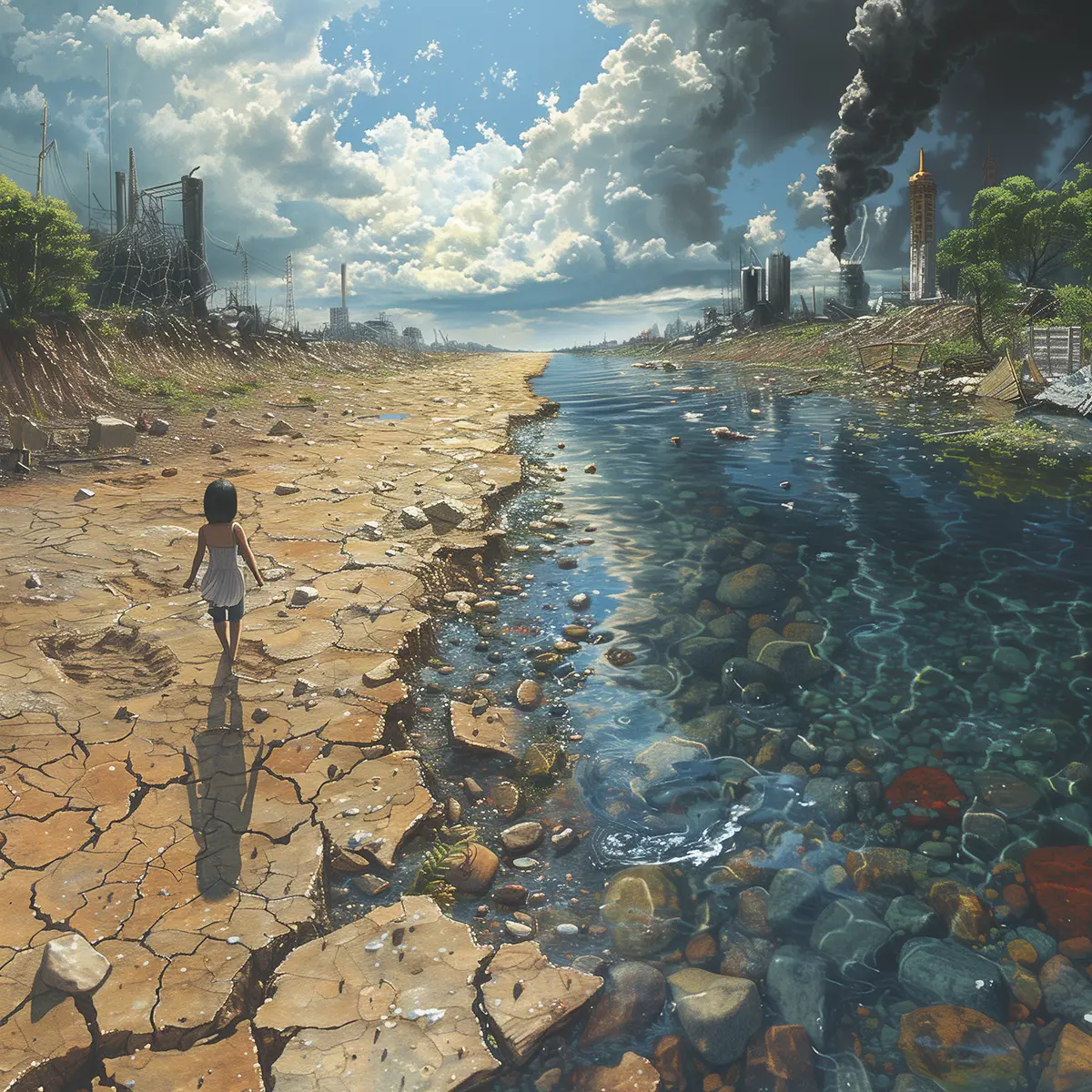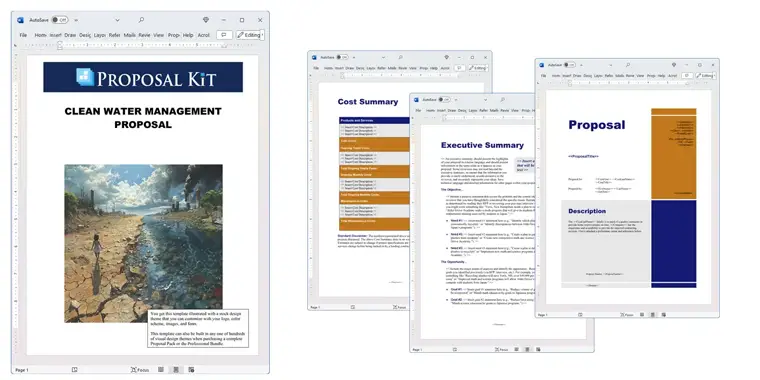How to write your Clean Water Management Proposal
We include this 23 page layout with every Proposal Pack. If you want this template to have a different visual design theme than the one illustrated here, purchase any Proposal Pack design and create this template using the purchased design theme. This template is included in every Proposal Pack. If you get a Proposal Pack or the Professional, you can also make any variation of this template with different chapters to suit your needs.
We typically include more chapters in the templates than most people will need to give everyone more variety in the chapters they may need. You can trim down a long template by removing pages you do not need or combining multiple chapter topics into one page.
 DOWNLOADABLE, ONE-TIME COST, NO SUBSCRIPTION FEES
DOWNLOADABLE, ONE-TIME COST, NO SUBSCRIPTION FEESYou can also create countless variations of this document to suit your needs using the included library of 2200+ chapters if ordering a Proposal Pack or Professional.
 What Our Clients Say
What Our Clients SayAfter purchasing the Proposal Kit Professional, buying the proposal pack was a no brainer. It makes putting your proposal together simple with its great automation capability. It definitely save time on putting together great proposals and you should definitely get it."
Co-Principal at A&A Property Solutions, Inc.
Related Article
Related Video
Related Templates
- Green Stormwater Infrastructure Design Services Proposal
- Lift Station Refurbishment Construction Proposal
- New Water Wells Project Proposal
- Stormwater Facility Low Impact Development Proposal
- Supply and Application of Calcium Chloride Proposal
- Wastewater System Improvements Proposal
- Wastewater Treatment Plant Signage Upgrade Proposal
- Waterline Cathodic Protection Program Proposal
- Water Meter Reading Services Proposal
- Equipment Operation and Maintenance for Water Production Proposal
- Water Treatment and Sanitation Project Proposal
- CCTV Inspection of Sewer Proposal
- Water Treatment Plant Project Proposal
- Clean Water Supply Project Proposal
- Project Management Consulting Services Proposal
- Natural Resources Management Proposal
Writing a Compelling Clean Water Management Proposal with Proposal Kit
Writing a clean water management proposal can seem daunting, especially for those new to the process. However, with the help of the Proposal Kit, writing a detailed and persuasive proposal becomes streamlined and manageable. The Proposal Kit offers a comprehensive set of templates and tools, including a line item quoting database for financial documentation. It is a proven way to write a clean water management proposal.
If you're tasked with writing a proposal for any of these projects, how can Proposal Kit help you write a standout proposal?
These templates, and the thousands more available in the Proposal Kit library, can be customized to cover all the topics needed in your proposal.
What Types of Projects Are Clean Water Management Proposals Written For?
Clean water management encompasses a wide range of projects. Clean water and sanitation are worldwide issues. Each project type aims to preserve or enhance water quality and accessibility. Some typical projects include:
- Implementation of advanced water purification technologies
- Development of sustainable water-sourcing initiatives
- Restoration of natural water bodies to reduce pollution
- onstruction of infrastructure for efficient wastewater treatment
- Campaigns for public awareness of water conservation practices
- Programs for the reduction of industrial water pollution
- Initiatives for rainwater harvesting and storage
- Projects aimed at protecting watershed areas
- Water quality monitoring and reporting systems
- Installation of water-efficient irrigation systems for agriculture
Chapters this template is built with
Proposal Kit provides an extensive selection of templates that can be customized to fit the specific needs of a clean water management proposal. These templates include:
Cover Letter
Begin with a warm introduction of your organization, emphasizing your dedicated mission to safeguarding and enhancing clean water access. Highlight your team's expertise and commitment to implementing sustainable water management practices. Make it clear that your proposal addresses critical water issues, underscoring your organization's readiness to tackle these challenges head-on.
Abstract
Provide a succinct overview of your project, focusing on its primary objectives. Outline the key goals, such as improving water quality, ensuring sustainable water use, and protecting water resources from depletion and pollution. Summarize the intended outcomes, such as enhanced water management practices and increased awareness of water conservation needs.
Resource Management
Discuss your comprehensive strategies for efficiently managing water resources. These include innovative water-saving technologies, integrated water resource management approaches, and collaboration with local communities and stakeholders to optimize water use and preserve natural ecosystems.
Replenishment
Detail your plans for replenishing diminished water sources through methods like rainwater harvesting, reforestation to increase rainfall, and the restoration of aquifers and wetlands to enhance water availability naturally.
Consumption
Analyze current patterns of water consumption within the target area, identifying areas of waste and inefficiency. Propose specific improvements such as adopting water-efficient appliances, changing agricultural practices, and promoting water conservation among consumers.
Risk Analysis
Identify potential risks affecting water quality and availability, including pollution sources, climate change impacts, and over-extraction of water resources. Assess the probability and severity of these risks and propose measures to mitigate them effectively.
Environmental Effects
Examine the broader environmental impact of existing water management practices, focusing on habitat destruction, pollution, and changes to the natural water cycle. Highlight the need for eco-friendly management practices that protect and restore the natural environment.
Consequences
Illuminate the dire consequences of failing to address water management issues, such as the loss of biodiversity, increased health risks from polluted water, and the economic impacts of water scarcity on communities and industries.
Methodology
Describe the methodologies you plan to implement in your water management project, from data collection and analysis to technology deployment and community engagement strategies. This section should convey a clear, actionable plan for achieving project goals.
Impact Statement
Discuss your project's positive impact on water quality and accessibility, detailing how your efforts will lead to healthier ecosystems, improved public health, and enhanced resilience to environmental stresses.
Depletion
Address the critical issue of water depletion, outlining the causes and proposing solutions to ensure the sustainable use of water resources. Measures include setting withdrawal limits, enhancing water recycling, and protecting natural catchment areas.
Reserves
Explore strategies for establishing and maintaining water reserves, which are crucial for ensuring water security during dry periods. Discuss the creation of strategic reservoirs, the conservation of wetlands, and policies for sustainable groundwater management.
Natural Resources
Highlight the importance of natural resources in maintaining a clean water supply, emphasizing the need to protect watersheds, forests, and wetlands that play critical roles in water purification and retention.
Predictions
Based on current data and analysis, offer insights into future water quality and supply trends. Discuss potential challenges and opportunities, using predictions to underscore the urgency of implementing effective water management solutions now.
Analysis
Delve into a detailed analysis of your project's feasibility, examining technical, economic, and social factors. This should include an assessment of potential challenges and how your project is designed to overcome them, ensuring successful outcomes.
Project Budget
Present a comprehensive budget that covers all aspects of your project, from initial research and planning to implementation and monitoring. Include direct costs like materials and labor and indirect costs such as community outreach and education.
Conclusions
Summarize the proposal, reiterating its significance and the positive changes it aims to bring about. Emphasize your organization's commitment to clean water management and the long-term benefits of your project.
References
Cite relevant studies, reports, and previous projects that lend credibility to your proposal. This section demonstrates your thorough research and alignment with best practices in water management.
Sustainability
Stress the sustainability of your project, highlighting how its implementation will lead to lasting improvements in water management practices, ensuring the long-term health of water ecosystems and the communities that depend on them.
Data
Include pertinent data that supports your proposal's objectives, such as statistics on current water quality, consumption patterns, and preliminary study results. This data provides a solid foundation for your project's goals and strategies.
Use cases for this template
Jordan's Construction Proposal Breakthrough
At the helm of AquaBuild Solutions, Jordan recognized the importance of securing a pivotal municipal project to construct water-efficient infrastructure. Understanding the project's potential to significantly impact the community's access to clean water, Jordan turned to Proposal Kit to ensure his proposal would stand out. After a deep dive into the Clean Water Act and a clear alignment with water quality objectives, Jordan meticulously wrote a proposal that went beyond mere compliance. It envisioned a future where water efficiency was at the heart of community development.
The proposal included detailed descriptions of previous AquaBuild Solutions projects, showcasing the team's proficiency and innovative approaches to water management. Jordan emphasized a comprehensive water management plan, incorporating state-of-the-art technologies and practices that promised to meet and exceed the project's requirements. The clarity of financial estimates and the precision of project timelines presented in the Proposal Kit format demonstrated AquaBuild Solutions' commitment to accountability and excellence. This strategic approach, facilitated by the robust framework of the Proposal Kit, ultimately clinched the municipal project for Jordan, marking a significant milestone in his mission to enhance community water systems.
Casey's Deadline Success
Casey, an environmental analyst with WaterWise Consulting, was up against a formidable deadline to submit a proposal that could elevate the firm's standing in clean water management. The task demanded speed and a depth of knowledge and innovation that Casey knew could be challenging under time constraints. Turning to the Proposal Kit as her foundational tool, Casey augmented her strategy with an AI writing assistant, creating a synergy that allowed her to write a compelling proposal swiftly.
The proposal Casey developed highlighted WaterWise Consulting's cutting-edge water conservation and quality improvement strategies, showcasing a blend of technological innovation and community engagement. She outlined effective water management plans that were both sustainable and adaptable, underlining the firm's commitment to making a tangible difference in water conservation efforts. Proposal Kit's templates provided a flexible, structured canvas, allowing Casey to infuse AI-generated insights with WaterWise's pioneering solutions. This innovative approach enabled Casey to submit the proposal on time. It ensured it resonated strongly with the project's goals, securing the project and reinforcing WaterWise Consulting's position as a leader in environmental solutions.
Alex's RFP Mastery for Global Water
Alex, dedicating his time to the Global Water Initiative, was tasked with drafting an RFP for a clean water management project to serve underserved communities. With a heart set on making a meaningful difference but needing more experience, Alex found a reliable partner in Proposal Kit. The tool's comprehensive templates and clear guidance offered him a step-by-step approach to writing an RFP that was both detailed and accessible.
Alex's RFP clarified the project's objectives, emphasizing the need for sustainable and scalable water solutions that could benefit communities in need long term. The document outlined specific selection criteria, ensuring that respondents aligned with the initiative's core values and objectives. Proposal Kit's user-friendly format allowed Alex to present a professional and thorough RFP, inviting submissions from capable contractors around the globe.
The quality and diversity of responses to Alex's RFP made it successful, leading to the selection of a contractor whose vision for clean water access matched the Global Water Initiative's goals. This project's success story was a testament to Alex's dedication and the power of Proposal Kit in empowering individuals to contribute effectively to vital causes, regardless of their prior experience.
Conclusions and Recommendations
The Proposal Kit is invaluable in addressing clean water management challenges, from drafting a winning construction proposal to meeting a critical submission deadline and creating an effective RFP. Each situation showcases how the Proposal Kit simplifies the proposal writing process, enabling individuals and organizations to effectively articulate their vision and solutions for clean water management.
Whether you're a small business owner, an employee with a looming deadline, or a volunteer at a non-profit, Proposal Kit provides the tools and templates necessary to write a proposal that not only meets the project's needs but also contributes to the vital goal of clean water access and sustainability.
Also Known As
This template may also be referred to in different ways or be used in more specialized situations, such as:
- Freshwater Sustainability Initiative
- Aquatic Resource Management Plan
- Water Quality Improvement Strategy
- Potable Water Enhancement Proposal
- Hydric Resource Conservation Scheme
- Drinking Water Protection Program
- Water Purity Enhancement Project
- Sustainable Water Use Framework
- Water Resource Stewardship Plan
- Clean Water Governance Proposal
Abstract
 The Proposal Kit offers a detailed and efficient way to develop successful project proposals for clean water management. This invaluable resource guides users through the intricate process of planning and executing clean water initiatives, ensuring projects are equipped with robust water infrastructure and adhere to sustainable sanitation practices. By fostering partnerships, Proposal Kit enables users to secure funding from diverse funding sources, emphasizing community education and the importance of ongoing maintenance to improve water quality and promote human health. The clean water plan serves as an important blueprint for economic development, allowing communities to thrive by implementing guidelines aligned with EPA standards.
The Proposal Kit offers a detailed and efficient way to develop successful project proposals for clean water management. This invaluable resource guides users through the intricate process of planning and executing clean water initiatives, ensuring projects are equipped with robust water infrastructure and adhere to sustainable sanitation practices. By fostering partnerships, Proposal Kit enables users to secure funding from diverse funding sources, emphasizing community education and the importance of ongoing maintenance to improve water quality and promote human health. The clean water plan serves as an important blueprint for economic development, allowing communities to thrive by implementing guidelines aligned with EPA standards.
Proposal Kit is a vital tool designed to streamline the creation of comprehensive clean water management proposals, addressing global challenges related to water quality and accessibility. By providing customizable templates, Proposal Kit assists individuals and organizations in developing plans that enhance water infrastructure, secure funding, and implement sanitation practices critical for human health. These proposals underscore the importance of community education and collaboration, advocating for clean water initiatives that balance economic development with environmental sustainability.
Proposal Kit supports users in tracking progress through its combination of clear methodologies and data collection tools, ensuring projects adhere to a realistic timeline. By preparing well-structured financial documentation and encouraging feedback, the tool highlights the critical need for ongoing maintenance and partnerships to ensure continued success. Proposal Kit's resources facilitate the development of innovative ideas, such as rainwater harvesting and efficient irrigation systems, which are crucial for protecting lakes and natural water reserves.
 The emphasis on energy efficiency and adherence to EPA guidelines demonstrate Proposal Kit's dedication to eco-friendly solutions. The tool's ability to guide users in creating proposals that address point-source pollution and other risks makes it an important part of clean water management efforts worldwide. By preparing project proposals that articulate goals, strategies, and benefits, the Proposal Kit helps users contribute significantly to global efforts in safeguarding water resources and promoting sustainable development.
The emphasis on energy efficiency and adherence to EPA guidelines demonstrate Proposal Kit's dedication to eco-friendly solutions. The tool's ability to guide users in creating proposals that address point-source pollution and other risks makes it an important part of clean water management efforts worldwide. By preparing project proposals that articulate goals, strategies, and benefits, the Proposal Kit helps users contribute significantly to global efforts in safeguarding water resources and promoting sustainable development.
Proposal Kit stands as a cornerstone in the development of clean water management plans, providing a structured framework that simplifies the proposal writing process. It helps users incorporate best practices and develop innovative solutions for water resource challenges across the globe. By guiding individuals and organizations through the steps required to secure funding and implement clean water initiatives, the Proposal Kit ensures that projects remain aligned with both community needs and environmental guidelines.
The tool emphasizes the importance of creating a project timeline, allowing users to schedule critical tasks such as resource assessment, technology deployment, and community engagement. This approach aids in maintaining momentum and tracking progress, ensuring that all project components are executed efficiently. Proposal Kit's templates also facilitate the exploration of diverse funding sources, enabling users to present compelling cases for investment in sustainable water solutions.
 In addition to securing financial backing, Proposal Kit encourages the integration of modern technologies and methodologies that enhance water quality and efficiency. Through collaboration with local stakeholders, users can develop strategies that include ongoing maintenance and energy conservation measures. The combination of these efforts not only improves water quality but also fosters economic development by reducing costs and conserving valuable natural resources.
In addition to securing financial backing, Proposal Kit encourages the integration of modern technologies and methodologies that enhance water quality and efficiency. Through collaboration with local stakeholders, users can develop strategies that include ongoing maintenance and energy conservation measures. The combination of these efforts not only improves water quality but also fosters economic development by reducing costs and conserving valuable natural resources.
By highlighting successful case studies and offering opportunities for feedback, Proposal Kit equips users with the knowledge and confidence to navigate complex water management challenges. This proactive approach allows for the preparation of detailed proposals that address potential risks and outlines contingency plans, ensuring that clean water projects are both resilient and adaptable to changing conditions.
Ultimately, Proposal Kit serves as an indispensable resource for those involved in clean water management, promoting a shared vision of sustainability and improved human health. By fostering a spirit of collaboration and innovation, it helps communities to safeguard their water resources and secure a brighter, more sustainable future.
Frequently Asked Questions
What should be included in a clean water management proposal?
A clean water management proposal should include several key components: an executive summary, background information, objectives, methodology, budget, and evaluation metrics. The executive summary provides a brief overview of the proposal. Background information explains the current water quality issues. Objectives outline the specific goals of the project. The methodology details the steps and techniques that will be used to achieve these goals. The budget breaks down the financial requirements, and evaluation metrics explain how the project's success will be measured.
How do I gather relevant data for my proposal?
Gathering relevant data for a clean water management proposal involves combining primary and secondary research. Primary research may include field surveys, water sampling, and interviews with local stakeholders. Secondary research reviews existing studies, reports, and data from governmental and environmental organizations. Using both types of research ensures a comprehensive understanding of the current water quality situation and validates the need for proposed interventions.
How can I ensure my proposal is persuasive to stakeholders?
To make your proposal persuasive, clearly identify the problem and its impact on the community, environment, and economy. Use data and case studies to support your points and demonstrate the issue's urgency. Outline the benefits of your proposed solution, including long-term sustainability and cost-effectiveness. Ensure that potential concerns are addressed and include endorsements or letters of support from respected figures or organizations. A professional, well-organized document with clear, concise language also enhances persuasiveness.
What are the common pitfalls to avoid when writing a clean water management proposal?
Common pitfalls include needing a clear problem statement, failing to provide sufficient evidence or data to support your claims, and needing to be more technical and jargon-heavy, which can alienate non-expert stakeholders. Additionally, addressing potential challenges or risks, underestimating the budget, and failing to outline a clear, actionable plan can ensure the proposal's credibility. Ensuring thorough proofreading and editing to avoid grammatical errors and inconsistencies is also crucial.
How do I create a realistic budget for my proposal?
Creating a realistic budget involves detailed planning and research. Begin by listing all activities and resources required for the project, including personnel, equipment, materials, and any external consultancy fees. Research current market prices and obtain quotes where possible. Factor in contingencies for unexpected costs and potential price increases. Justify each budget item in the proposal to demonstrate transparency and accountability. Collaboration with financial experts or stakeholders can also provide additional insights and validation.
20% Off Discount
![]() Add To Cart This Word Template
Add To Cart This Word Template
 Add To Cart Proposal Pack for Any Business
Add To Cart Proposal Pack for Any Business
 Add To Cart Proposal Kit Professional
Add To Cart Proposal Kit Professional
 4.7 stars, based on 849 reviews
4.7 stars, based on 849 reviewsProposal Kit chapters used in this template
Cover Letter, Title Page, Table of Contents, Abstract, Natural Resources, Environmental Effects, Consumption, Reserves, Depletion, Replenishment, Sustainability, Resource Management, Methodology, Risk Analysis, Consequences, Impact Statement, Analysis, Predictions, Project Budget, Conclusions, References, Data, Back Page
Line Item Automated Chapters
If you purchase a Proposal Pack or the Professional Bundle, these proposal pages are generated using an automated line-item database in the included Wizard software.
Project Budget
You use this proposal for
- General business proposal
- Non-technical proposal
- Non-government grant, non-profit, NGO proposal
- Nature, environmental proposal
How to create this template with Proposal Pack Wizard
You can create this document using any of the logo-designed Proposal Packs. Pick any Proposal Pack with a logo design theme you like best; they will all work equally well. The Proposal Pack for Any Business is the pack with no extra added logos or colors - designed to be used plain or for you to customize with your logos and graphics.
The Proposal Pack design theme you purchase will determine the visual look of this template. The screenshot above only shows the plain generic design theme.
We include a library of chapters to be assembled based on your needs. All proposals are different and have different needs and goals. We designed Proposal Pack so you can customize the documents to suit your needs.
You will best create this document using the Proposal Pack Wizard - Expert Edition software to select this template and build it in the Proposal Pack logo design theme of your choice along with any desired customizations (such as adding additional chapters, removing unneeded chapters, changing the order of chapters, and importing your company logo). This template outlines a proposal for the described situation. Each user is responsible for typing in the actual content of the provided pages with their information to complete the proposal. Suggestions in the abstract may include features in higher-end packages and are facilitated by the selection of chapter templates to support the narrative of each proposal, which help guide the user in filling in the details.
The Wizard software's AI Writer will write the content of the pages of the template based on details provided for your company, client, project, financial details and other writing instructions. This will provide a personalized version of the template completely written and ready to edit.
Once finished, the AI Writer's Word-to-PowerPoint converter can transform your proposal, business plan, or other business documents into a PowerPoint slideshow. Save time and effort by letting the AI analyze every chapter to condense its content into talking points, visually matching the document, and providing a consistent package of presentation material with the click of a button.
You create this template using the Wizard software with an entire Proposal Pack library and software. We include the Expert Edition of the software in the Proposal Kit Professional. Microsoft Word for Windows is required to use the customizing software. You can also edit Word document templates in other office software such as Word for Mac. We will assist Mac users in assembling complex templates for their first project if they do not have the required platform to run the Wizard software.
How to Build Templates Featured on Proposal Kit Website
Many people find the Proposal Kit website after searching for a specific proposal. Once you've purchased and installed the software, how do you build that template you found in the first place? This video shows you how to build any proposal you see on the Proposal Kit website.
 Ian Lauder has been helping businesses write their proposals and contracts for two decades. Ian is the owner and founder of Proposal Kit, one of the original sources of business proposal and contract software products started in 1997.
Ian Lauder has been helping businesses write their proposals and contracts for two decades. Ian is the owner and founder of Proposal Kit, one of the original sources of business proposal and contract software products started in 1997.By Ian Lauder
 Published by Proposal Kit, Inc.
Published by Proposal Kit, Inc.


 Cart
Cart
 Get 20% off ordering today:
Get 20% off ordering today: 


 Facebook
Facebook YouTube
YouTube Bluesky
Bluesky Search Site
Search Site